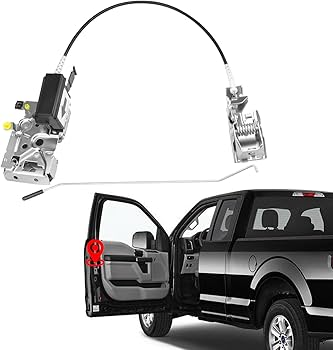In today's world, car security has become more essential than ever. Choosing the right car door locks and their components, such as the car door lock actuator, plays a pivotal role in ensuring your vehicle is secure. A car door lock actuator is a small yet crucial device responsible for locking and unlocking your car doors electronically, making it an indispensable part of modern car safety systems.
With so many options available on the market, how do you select the best, high-quality car door locks that ensure reliability, security, and longevity? In this article, we will discuss the key factors to consider when choosing car door lock actuators and other important features to help you make an informed decision.
Before diving into the selection process, it's essential to understand what a car door lock actuator is and how it works. Essentially, it is an electric motor that interacts with the car's locking system. When you press the lock or unlock button on your car's key fob, the actuator controls the movement of the lock mechanism inside the door.
A malfunctioning door lock actuator can lead to issues such as doors not locking or unlocking, strange noises when operating the locks, or doors staying stuck in one position. Therefore, choosing a high-quality car door lock actuator is vital for the optimal functioning of your vehicle's locking system.
Not all car door lock actuators are created equal, and investing in a high-quality one ensures:
When choosing a car door lock actuator, ensure it is compatible with your car’s make and model. While some actuators are universal, many are designed for specific vehicle brands. Installing an incompatible actuator can lead to improper functionality or damage to your vehicle’s door locks. Always check your vehicle’s specifications and consult with your mechanic or retailer to find the right fit.
A car door lock actuator operates multiple times a day, so choosing a product made from high-quality materials is essential. Look for actuators that are made from durable, corrosion-resistant materials, especially if you live in areas prone to extreme weather conditions. An actuator made from low-quality materials can fail quickly and jeopardize your car's security.
The performance of a door lock actuator largely depends on the quality of its motor. Choose an actuator with a robust and efficient motor that can handle repeated operations without wearing out quickly. A weaker motor may lead to delayed or incomplete locking/unlocking actions, which can be a significant inconvenience.
Some car door lock actuators come with easy-to-follow instructions and all the necessary components for installation. If you're a DIY enthusiast, choosing a user-friendly actuator with straightforward installation procedures can save you time and effort. On the other hand, if you're not comfortable with car repairs, ensure that your chosen actuator can be installed by a professional with minimal complications.
A car door lock actuator draws power from your car's battery. Choosing a model with low power consumption is beneficial in the long run, as it reduces the strain on your battery and ensures optimal functionality. High-quality actuators are designed to consume minimal power while providing maximum efficiency.
Some actuators can produce loud noises when locking or unlocking the door, which can be annoying over time. High-quality car door lock actuators are engineered to operate quietly, providing a more seamless experience. If noise reduction is a priority for you, be sure to read reviews or check specifications regarding the actuator’s noise levels before purchasing.

There are different types of car door lock actuators, and knowing the differences can help you make a more informed decision:
Understanding the type of actuator your vehicle uses can streamline your selection process and help you choose a more compatible model.
Even with a high-quality car door lock actuator, wear and tear can occur over time. Here are a few signs that it’s time for a replacement:
Choosing a high-quality car door lock actuator is a crucial step toward maintaining your vehicle’s security and convenience. By focusing on factors like compatibility, durability, motor strength, and noise levels, you can make an informed choice that ensures long-term reliability. Additionally, keeping an eye out for signs of malfunction can help you avoid potential security risks and inconveniences.
Remember, a high-quality car door lock actuator is not just about convenience—it's about ensuring the safety and security of your vehicle. Make sure you invest in a top-tier product to enjoy peace of mind on the road.
GET A QUOTE